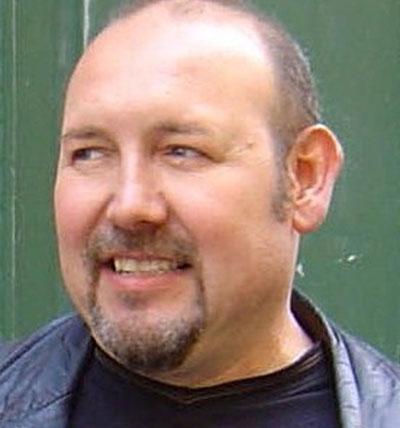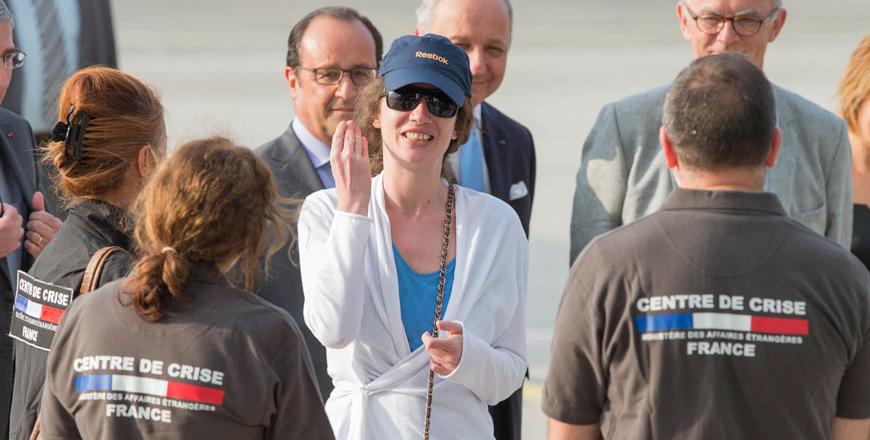You are here
France’s last hostage freed in Mali after three years of captivity
By AFP - Dec 09,2014 - Last updated at Dec 09,2014

PARIS — France’s last remaining hostage Serge Lazarevic, who was kidnapped by Islamist militants in Mali in 2011, has been freed, President Francois Hollande said Tuesday.
Serge Lazarevic, 51, was snatched by armed men in Mali on November 24, 2011 while on a business trip with fellow Frenchman Philippe Verdon in a kidnapping claimed by Al Qaeda in the Islamic Maghreb (AQIM).
There was no immediate information on how the release was secured or whether France paid a ransom.
Lazarevic is the last of more than a dozen French citizens taken captive in recent years, with those held in Africa reaching a high of 15 last year. Four journalists held by Syrian jihadists were released earlier this year.
“Our hostage Serge Lazarevic, our last hostage, is free,” Hollande said. “There are no more French hostages in any country in the world.”
The French presidency said a plane carrying Lazarevic’s daughter Diane was on its way to the Niger capital Niamey to fetch the former hostage, who would be met by Hollande on his return home.
“He is in relatively good health, despite the gruelling conditions of his long captivity,” said Hollande.
A Malian security source said the final stages of Lazarevic’s release had taken place in the northern desert city of Kidal.
“I won’t say if there was a ransom payment or liberation of prisoners,” the source told AFP.
In his three years in captivity, Lazarevic appeared in several AQIM videos, the most recent of which was in November in which he said he was gravely ill and believed his life to be in danger.
Fears spiked for the safety of the towering Frenchman of Serbian origin after hiker Herve Gourdel was abducted in Algeria and beheaded in September by Islamic State-linked militants.
Home ‘for Christmas’
After Lazarevic’s appearance with a thick beard and dark headdress in the last video, his daughter Diane beseeched Hollande to double down and obtain his release “as fast as possible... for Christmas”.
Kidnapped at a small hotel in Hombori, in Mali’s north, Lazarevic and Verdon were held captive during one of the most turbulent periods of the country’s history.
The pair, who worked in security and construction, were accused by AQIM of being French intelligence agents, something which their families have denied.
They were in the hands of AQIM as it and other hardline Islamist groups launched a takeover of vast areas of northern Mali in 2012 and as they were in turn ousted by the French army who intervened in January 2013.
Verdon, who suffered from an ulcer and tachycardia — an abnormally fast heartbeat — was found shot dead last year, and those close to his family suggested he had been executed as he was weak.
Uncertainty remains over the fate of another French hostage Gilberto Rodrigues Leal whose death was claimed by an AQIM splinter group but whose remains have never been found.
“We have the grimmest information concerning him. His family knows this. But, France has no more hostages, it must have no more hostages,” Hollande said, calling for great vigilance and protection of French interests.
Hollande thanked the authorities in Mali and Niger for their assistance in securing Lazarevic’s release.
“This liberation was the result of intense and continued efforts from authorities both in Niger and Mali,” the presidency in Niamey said in a statement.
One of the main armed Tuareg groups in the still-volatile region, the High Council for the Unity of Azawad (HCUA) said it had also “participated in the release” efforts.
While the details of Lazarevic’s release were not given, France has repeatedly denied paying ransoms despite being accused of using back-channels to do so by other Western nations.
“France does not pay ransoms, nor does France engage in prisoner exchanges,” Hollande said in September.
But he added: “This does not mean that countries do not do it. It has happened that some countries, to help us, do it. That I concede.”
Former anti-terrorism judge Alain Marsaud was more sceptical.
“There is no reason for heated debate. We pay, we pay and that is all,” he told RTL radio. “There is no release if there is no payment. Someone paid, if not the government, a business or insurance company.”
Related Articles
PARIS () — Frenchwoman Isabelle Prime, freed after nearly six months of captivity in Yemen, arrived in Paris Friday to be welcomed by Presid
Two Algerian diplomats kidnapped in Mali in April 2012 by the Movement for Oneness and Jihad in West Africa (MUJAO) were freed on Saturday, the Algerian foreign ministry announced.
ALGIERS — Algeria’s army has retrieved a “slice of the ransom” cash paid out to free hostages held by “terrorist groups” in the troubled Sah












